This article was co-authored by Jason Myerson, DPT, DMT, OCS, FAAOMPT and by wikiHow staff writer, Jessica Gibson. Jason Myerson is a Physical Therapist and a Certified Orthopedic Specialist. He is affiliated with Performance Physical Therapy & Wellness with clinics located in Connecticut. He serves as adjunct faculty in the Physical Therapy Department at Quinnipiac University. Jason specializes in helping active people get back to hobbies, activities, and sports they love while utilizing an integrated approach to wellness. He holds an MA in Physical Therapy from Quinnipiac University and a Doctorate in Physical Therapy (DPT) from Arcadia University. He is Residency and Fellowship trained in Orthopedic Manual Therapy, achieved a Doctorate in Manual Therapy (DMT) and became a Fellow of the American Academy of Orthopedic Manual Physical Therapists (FAAOMPT).
There are 17 references cited in this article, which can be found at the bottom of the page.
wikiHow marks an article as reader-approved once it receives enough positive feedback. This article received 15 testimonials and 87% of readers who voted found it helpful, earning it our reader-approved status.
This article has been viewed 350,109 times.
Arthritis can be painful, but you don't have to put up with it. Whether you have osteoarthritis from wear and tear of your joints or the autoimmune disease, rheumatoid arthritis, there is pain relief. The key is trying several pain relief strategies to find the ones that work for you. We've put together some great ideas to get you started.
Steps
Expert Q&A
-
QuestionHow can I fight osteoarthritis naturally?
 Jason Myerson, DPT, DMT, OCS, FAAOMPTJason Myerson is a Physical Therapist and a Certified Orthopedic Specialist. He is affiliated with Performance Physical Therapy & Wellness with clinics located in Connecticut. He serves as adjunct faculty in the Physical Therapy Department at Quinnipiac University. Jason specializes in helping active people get back to hobbies, activities, and sports they love while utilizing an integrated approach to wellness. He holds an MA in Physical Therapy from Quinnipiac University and a Doctorate in Physical Therapy (DPT) from Arcadia University. He is Residency and Fellowship trained in Orthopedic Manual Therapy, achieved a Doctorate in Manual Therapy (DMT) and became a Fellow of the American Academy of Orthopedic Manual Physical Therapists (FAAOMPT).
Jason Myerson, DPT, DMT, OCS, FAAOMPTJason Myerson is a Physical Therapist and a Certified Orthopedic Specialist. He is affiliated with Performance Physical Therapy & Wellness with clinics located in Connecticut. He serves as adjunct faculty in the Physical Therapy Department at Quinnipiac University. Jason specializes in helping active people get back to hobbies, activities, and sports they love while utilizing an integrated approach to wellness. He holds an MA in Physical Therapy from Quinnipiac University and a Doctorate in Physical Therapy (DPT) from Arcadia University. He is Residency and Fellowship trained in Orthopedic Manual Therapy, achieved a Doctorate in Manual Therapy (DMT) and became a Fellow of the American Academy of Orthopedic Manual Physical Therapists (FAAOMPT).
Physical Therapist & Certified Orthopedic Specialist Physical Therapist & Certified Orthopedic SpecialistExpert AnswerTo help avoid osteoarthritis pain, try to get up and move around frequently. For instance, if you're working, get up once or twice an hour to stretch, rather than working for 3 or 4 hours at a time.
Physical Therapist & Certified Orthopedic SpecialistExpert AnswerTo help avoid osteoarthritis pain, try to get up and move around frequently. For instance, if you're working, get up once or twice an hour to stretch, rather than working for 3 or 4 hours at a time. -
QuestionDoes exercise help with arthritis pain?
 David Schechter, MDDr. David Schechter is a physician in Culver City, California. With over 25 years of experience as a family and sports medicine physician, Dr. Schechter specializes in mind-body medicine, preventive medicine, and chronic pain. Dr. Schechter received his MD from New York University and is an attending physician at Cedars-Sinai Medical Center. He was named a Top Doctor by Los Angeles Magazine and Men's Health Magazine. He has also written several books, including The MindBody Workbook.
David Schechter, MDDr. David Schechter is a physician in Culver City, California. With over 25 years of experience as a family and sports medicine physician, Dr. Schechter specializes in mind-body medicine, preventive medicine, and chronic pain. Dr. Schechter received his MD from New York University and is an attending physician at Cedars-Sinai Medical Center. He was named a Top Doctor by Los Angeles Magazine and Men's Health Magazine. He has also written several books, including The MindBody Workbook.
Family Medicine Practitioner It really depends on the type of exercise and the type of arthritic pain. Some light exercise and smart rehabilitation can be a good thing. At the same time, arthritic joints really need to rest sometimes. I'd recommend talking to your doctor first before you do anything else.
It really depends on the type of exercise and the type of arthritic pain. Some light exercise and smart rehabilitation can be a good thing. At the same time, arthritic joints really need to rest sometimes. I'd recommend talking to your doctor first before you do anything else. -
QuestionWhat can I do to relieve knee pain?
 David Schechter, MDDr. David Schechter is a physician in Culver City, California. With over 25 years of experience as a family and sports medicine physician, Dr. Schechter specializes in mind-body medicine, preventive medicine, and chronic pain. Dr. Schechter received his MD from New York University and is an attending physician at Cedars-Sinai Medical Center. He was named a Top Doctor by Los Angeles Magazine and Men's Health Magazine. He has also written several books, including The MindBody Workbook.
David Schechter, MDDr. David Schechter is a physician in Culver City, California. With over 25 years of experience as a family and sports medicine physician, Dr. Schechter specializes in mind-body medicine, preventive medicine, and chronic pain. Dr. Schechter received his MD from New York University and is an attending physician at Cedars-Sinai Medical Center. He was named a Top Doctor by Los Angeles Magazine and Men's Health Magazine. He has also written several books, including The MindBody Workbook.
Family Medicine Practitioner The knee is a complicated joint. Typically, knee pain is the result of overuse, so a little rest may be in order. But you could start with ice and anti-inflammatory pills or gels. You could also get a knee sleeve, which is made of neoprene or elastic, to provide some support for your knee.
The knee is a complicated joint. Typically, knee pain is the result of overuse, so a little rest may be in order. But you could start with ice and anti-inflammatory pills or gels. You could also get a knee sleeve, which is made of neoprene or elastic, to provide some support for your knee.
References
- ↑ Zheni Stavre, MD. Board Certified Rheumatologist. Expert Interview. 3 February 2021.
- ↑ https://www.uofmhealth.org/health-library/hw125087
- ↑ https://health.clevelandclinic.org/should-you-use-ice-or-heat-for-pain-infographic/
- ↑ https://health.clevelandclinic.org/7-things-you-probably-didnt-know-about-epsom-salt/
- ↑ https://pubmed.ncbi.nlm.nih.gov/17159021/
- ↑ https://www.arthritis.org/health-wellness/healthy-living/physical-activity/success-strategies/eights-ways-to-move-more
- ↑ Zheni Stavre, MD. Board Certified Rheumatologist. Expert Interview. 3 February 2021.
- ↑ https://www.arthritis.org/health-wellness/healthy-living/nutrition/anti-inflammatory/the-ultimate-arthritis-diet
- ↑ David Schechter, MD. Family Medicine Practitioner. Expert Interview. 15 July 2020.
- ↑ https://pubmed.ncbi.nlm.nih.gov/12019049/
- ↑ Zheni Stavre, MD. Board Certified Rheumatologist. Expert Interview. 3 February 2021.
- ↑ https://pubmed.ncbi.nlm.nih.gov/21104944/
- ↑ https://www.arthritis.org/health-wellness/treatment/complementary-therapies/supplements-and-vitamins/supplements-for-arthritis
- ↑ https://www.ncbi.nlm.nih.gov/pmc/articles/PMC4303902/
- ↑ https://pubmed.ncbi.nlm.nih.gov/16531187/
- ↑ https://pubmed.ncbi.nlm.nih.gov/24718489/
- ↑ https://www.ncbi.nlm.nih.gov/pmc/articles/PMC5473429/
- ↑ David Schechter, MD. Family Medicine Practitioner. Expert Interview. 15 July 2020.
- ↑ https://orthop.washington.edu/patient-care/articles/arthritis/frequently-asked-questions-about-arthritis.html
- ↑ https://pubmed.ncbi.nlm.nih.gov/27634207/
About This Article
To get rid of arthritis pain, try taking over-the-counter analgesics, like Tylenol, or nonsteroidal anti-inflammatory drugs, like ibuprofen, for quick relief. You can also treat a painful joint directly by applying a topical analgesic, such as capsaicin, onto your skin near the joint. If you'd prefer a more natural pain relief solution, try taking anti-inflammatory supplements, like SAM-e, fish oil, and avocado-soybean Unsaponifiables, instead. You should also make sure to exercise regularly and stay mobile to keep your joints from stiffening. However, avoid activities that put too much pressure on your joints, since you can overwork them. For more tips from our Medical co-author, like how to get rid of arthritis pain by making diet changes, scroll down!
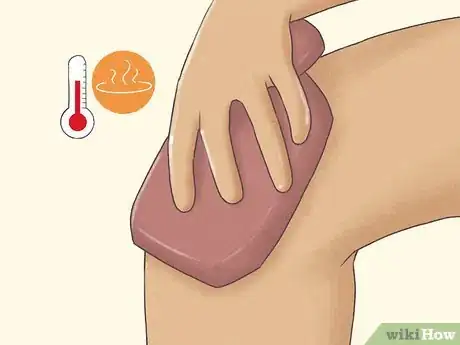

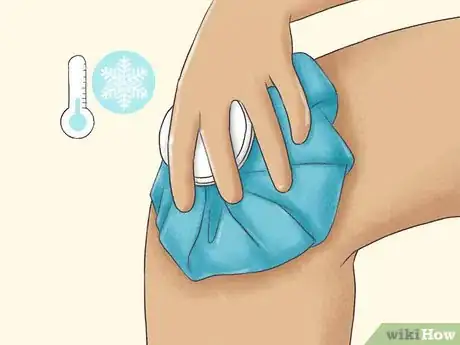
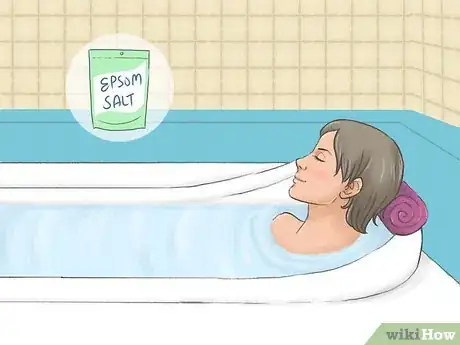
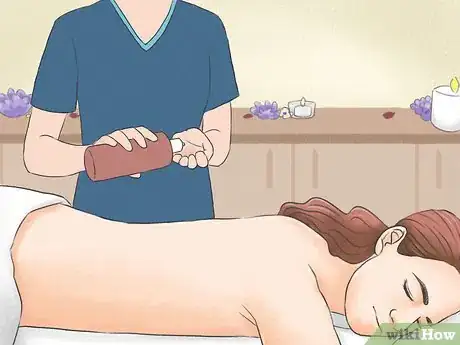
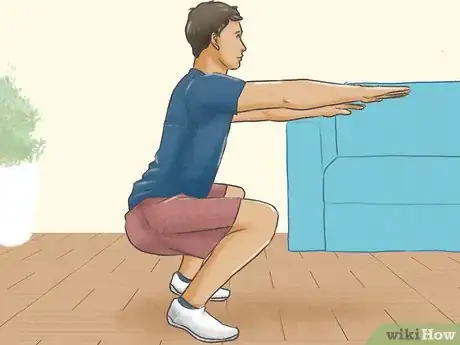
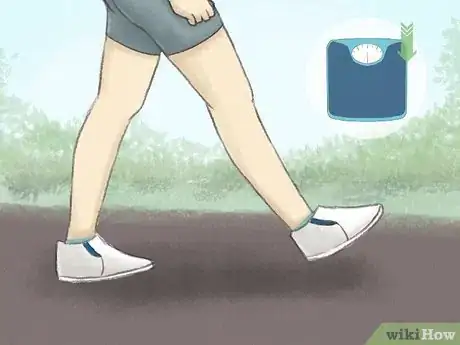
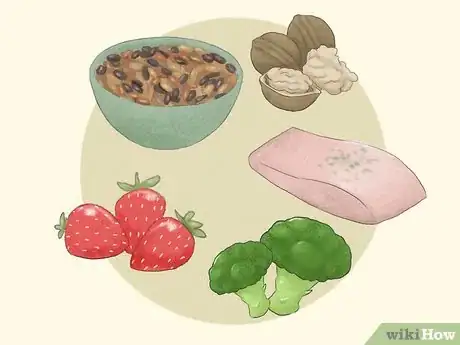


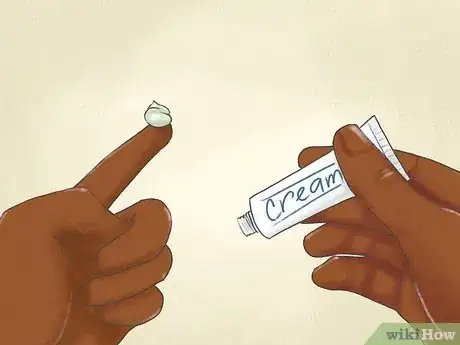
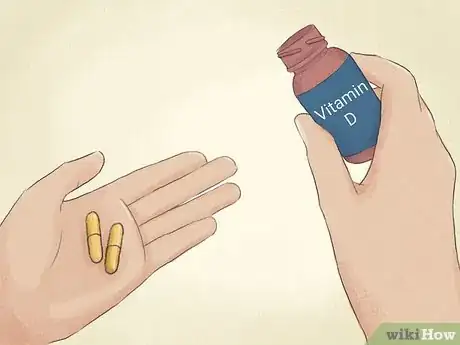
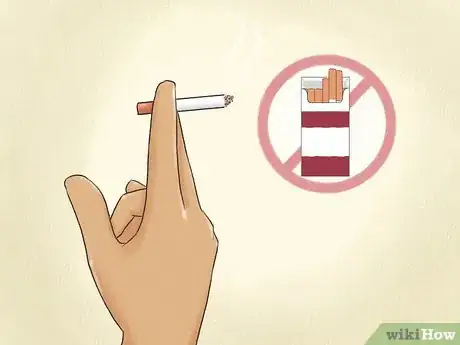
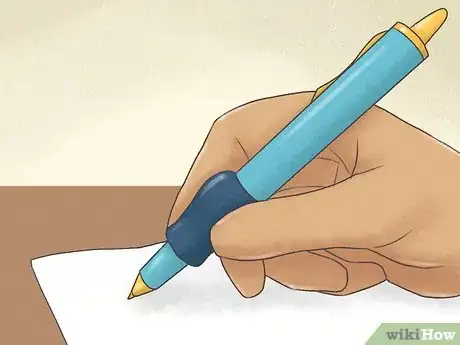
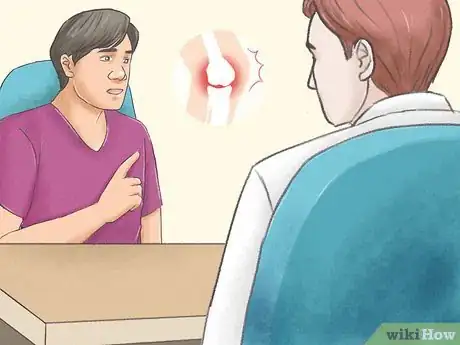

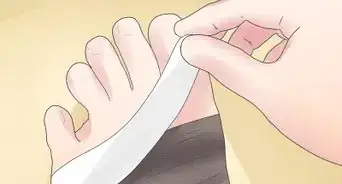

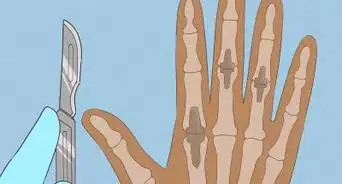

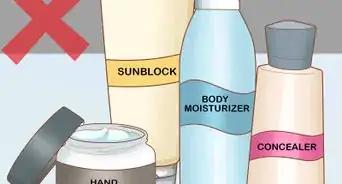
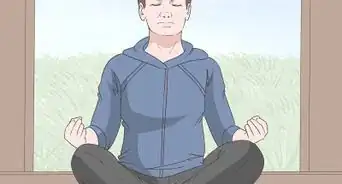
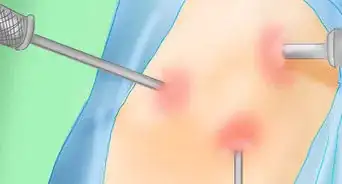

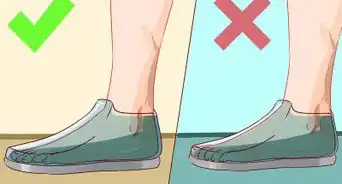
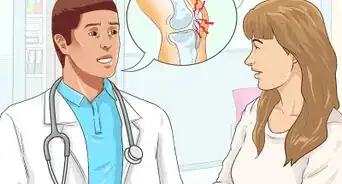

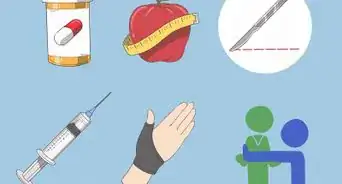
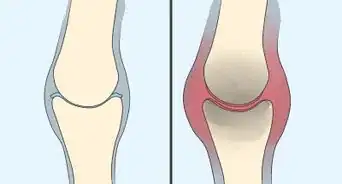











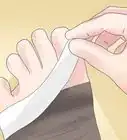





































Medical Disclaimer
The content of this article is not intended to be a substitute for professional medical advice, examination, diagnosis, or treatment. You should always contact your doctor or other qualified healthcare professional before starting, changing, or stopping any kind of health treatment.
Read More...